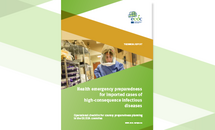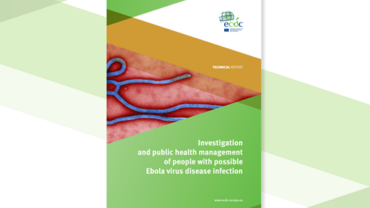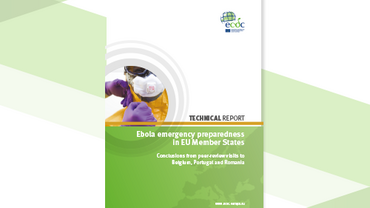Health emergency preparedness for imported cases of high-consequence infectious diseases
To support countries in the European Union/European Economic Area (EU/EEA) in their review of preparedness system planning, ECDC launches an operational checklist for health emergency preparedness for imported cases of high consequence infectious diseases.
Executive summary
Preparedness planning is essential in order to respond effectively to outbreaks, including single cases of high consequence infectious diseases (HCID), such as the importation of a viral haemorrhagic fever case.
HCIDs can include diseases such as: Ebola virus disease, Crimean Congo haemorrhagic fever, Marburg virus disease, highly pathogenic avian influenza, pneumonic plague, severe acute respiratory syndrome, to name a few. Patients with such diseases typically develop severe symptoms and require a high level of care. Moreover, case-fatality rates can be high.
Several HCIDs are transmissible from person to person and therefore require healthcare workers to take precautions to prevent transmission.
The ECDC preparedness checklist describes the system elements that need to be planned, and the required organisational competencies in order to effectively manage the threat. It has been developed for public health planners.
The content of the ECDC checklist is based on work performed during the Ebola virus disease outbreak in West Africa (2013–2016) and a specific protocol used in the peer-review visits to three EU member states. Enhanced with a number of references, it may be seen as complementary to broader preparedness checklists published by other international organisations.
Download






